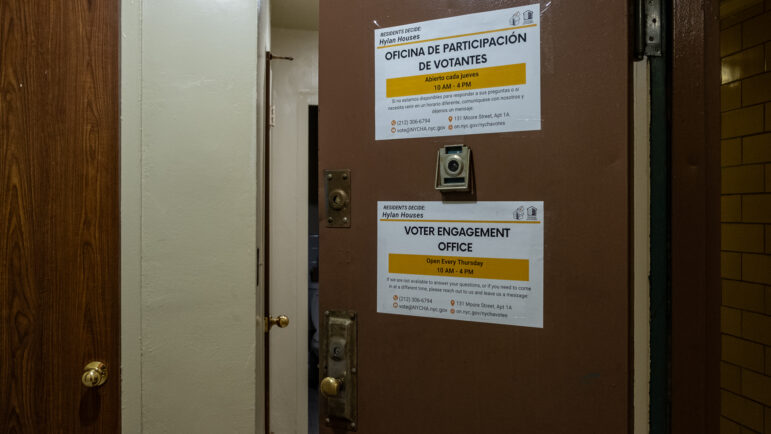The new City Marshals’ Handbook has 14 additional sections stressing courtesy, professionalism and respect. But the changes haven’t done much to clarify a confusing and terrifying process. Ask Sherry Smith.
When Marshal Danny Weinheim came to issue Smith a dispossession order last month, she charges he yanked her phone from the wall and the movers crushed her antique ceramic dolls. “There was broken glass shattered everywhere. I don’t know how they took down the paintings, but they were torn to shreds,” says Smith, standing in her newly barren Gramercy park studio. Her belongings were moved to a storage facility in the Bronx.
The City Marshal’s Handbook–the guide on how the 53 city-appointed private contractors carry out dispossessions and evictions–has been updated to make the eviction teams more accommodating to tenants. But the guide didn’t help Smith identify the procession of men who tramped into her apartment, handed her papers, changed her locks and took her things away. In Smith’s case, she should have been made aware that she had two additional days to move her things out. Instead she was unprepared when movers–who were apparently hired by her landlord–jumped the gun and began trashing her place.
The Marshals are quasi-governmental law enforcement agents appointed by the Mayor–though Ed Koch was the last to name a new one. It isn’t clear if the Giuliani administration intends to hire new marshals to accommodate the expected surge in evictions that may result from new landlord-friendly Housing Court laws. Either way, it’s no money out of the city’s pocket: Rates are typically paid by the creditor. An eviction like Sherry Smith’s nets them about $100.
A spokesman at the city Department of Investigations says Weinheim–who was scheduled to return November 25 to evict Smith–fulfilled his obligations by delivering the order and leaving. “The Marshals job is to execute the warrant, and deliver possession of the apartment to the landlord,” says the DOT’s Kevin Ryan. And DOT has no plans to sanction the landlord, even though he had no apparent right to touch Smith’s belongings. Whatever happened in the apartment, Ryan adds, was “gray area.” As for Sherry Smith, the Community Service Society says it will pay for her five-day stay at a local YWCA. After that, she’s on her own.







